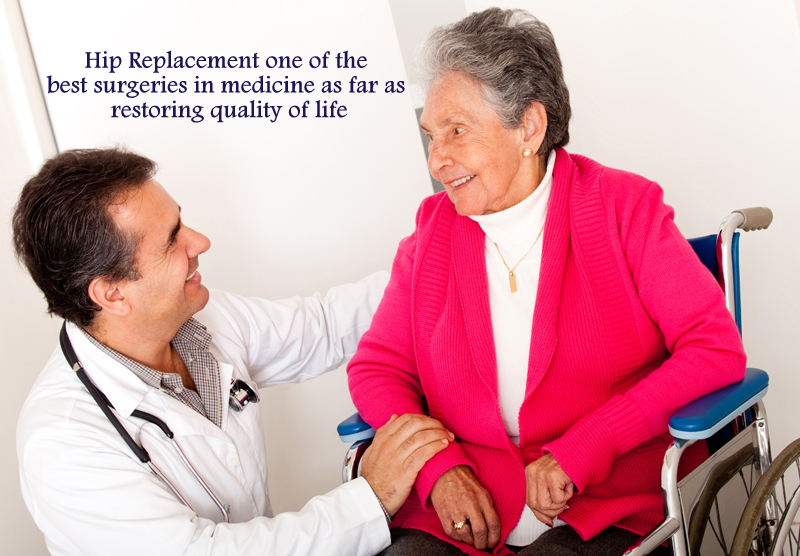
According to New Orleans orthopedic surgeon Dr. Richard Meyer, when most of his patients wake up from hip replacement surgery, that deep-seated, bone-on-bone, grinding, stabbing pain that they’ve been living with is gone. It’s one of the best surgeries in today’s medicine for restoring quality of life.
In fact, within hours of the anesthesia wearing off, patients who may have required a wheelchair to get around prior to surgery are typically up and walking, using a crutch or cane for support.
Most of Dr. Meyer’s patients who undergo hip replacement surgery have osteoarthritis in the hip joint. Osteoarthritis occurs when we lose the smooth cartilage cap that lines the end of the bones that help our joints move freely and easily. When that cartilage cap wears down, the bone grinds like sandpaper in the joint.
While many people are born with a predisposition for wearing out their hips early, your New Orleans orthopedic surgeon finds that some develop osteoarthritis because of hip dysplasia, in which the socket is too shallow and creates stress on the cartilage. Others lose cartilage over time because they have hip impingement, which results in the ball and socket bumping into each other.
The years leading up to the surgery, however, can be a long road of searching for answers. Hip replacement doesn’t become an option until more conservative treatments — such as anti-inflammatory medications, physical therapy and joint injections — fail to alleviate the pain.
It’s best to avoid getting the surgery too early because, just like car bearings that need to be replaced, the artificial bearings used in hip replacements don’t last forever, meaning that a middle-aged patient who undergoes the surgery may someday require a major revision.
At the same time, your New Orleans orthopedic surgeon points out that you don’t want to wait so long that the pain interferes with your ability to live your life and do the activities you enjoy.
The surgery itself takes about an hour and a half. Most patients stay overnight, and Dr. Meyer encourages them to go home the next day to recover where they’ll heal best in their own environment surrounded by people who love them, rather than to a rehab facility.
Within two weeks of recovery, patients can do most household activities. Within six weeks, they are out shopping. And at the three-month mark, they are able to start getting back to playing tennis and skiing.
If you are experiencing pain and would like to determine if you are a candidate for hip replacement surgery, call the office of New Orleans orthopedic surgeon Dr. Richard Meyer today to Schedule a Consultation.